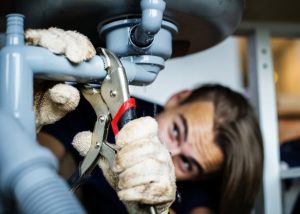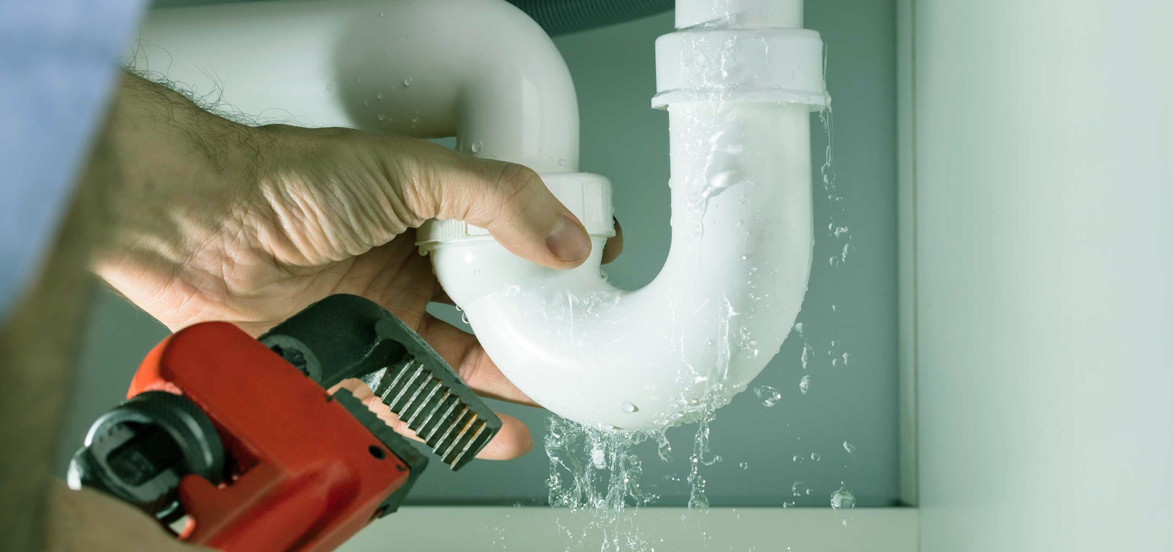On this page in the next paragraph you might get more outstanding data pertaining to Leaking water lines.

Early detection of dripping water lines can mitigate a potential disaster. Apart from saving you money, it will lessen the stress as well as irritation. The minute you discover a leak, calling your plumber for repairs is the best remedy. Some small water leaks may not be noticeable. If you can not find it with your nude eyes, right here are some hacks that help.
1. Analyze the Water Meter
Every residence has a water meter. Examining it is a surefire manner in which helps you find leakages. For starters, shut off all the water resources. Guarantee no person will flush, make use of the faucet, shower, run the washing machine or dishwasher. From there, most likely to the meter and also watch if it will certainly change. Because no person is using it, there should be no motions. If it relocates, that indicates a fast-moving leakage. If you find no changes, wait an hour or two as well as inspect back once more. This suggests you may have a slow leak that could even be underground.
2. Examine Water Usage
If you find abrupt modifications, regardless of your usage being the very same, it means that you have leaks in your plumbing system. An unexpected spike in your bill suggests a fast-moving leakage.
Meanwhile, a steady boost each month, despite having the very same behaviors, reveals you have a slow leakage that's also gradually escalating. Call a plumber to completely inspect your building, specifically if you really feel a warm location on your flooring with piping beneath.
3. Do a Food Coloring Test
When it comes to water usage, 30% comes from commodes. If the color in some way infiltrates your dish during that time without flushing, there's a leak in between the container and bowl.
4. Asses Outside Lines
Do not forget to inspect your exterior water lines also. Test spigots by connecting a yard pipe. Needs to water seep out of the connection, you have a loose rubber gasket. Replace this and make sure all links are limited. It will help get it professionally checked out and also preserved yearly if you've obtained a lawn sprinkler system. One little leakage can squander tons of water and also surge your water bill.
5. Evaluate the scenario and check
Property owners must make it a habit to inspect under the sink counters and also even inside cupboards for any bad odor or mold development. These 2 red flags suggest a leakage so punctual attention is required. Doing routine assessments, also bi-annually, can conserve you from a major problem.
Check for discolorations and also weakening as many pipelines and also appliances have a life expectations. If you suspect leaking water lines in your plumbing system, don't wait for it to escalate.
Early detection of leaking water lines can alleviate a prospective calamity. Some little water leakages might not be noticeable. Inspecting it is a guaranteed method that assists you uncover leakages. One small leakage can squander lots of water as well as spike your water bill.
If you believe dripping water lines in your plumbing system, do not wait for it to escalate.
How to Know If Your Home Has a Hidden Leak
Water Meter Reveals Inexplicable Water Usage
If you’d like to test whether or not there’s a leak somewhere in your home, you can do this using your water meter. Here is how to conduct the test:
Don’t use any water in your home for at least 30 minutes; this also means not turning on faucets or water-using appliances.
Go outside, and check your water meter for activity.
If your water meter shows that there was activity, even though no one was using any water, this proves that there is a leak in your home.Visible Mold or Mildew Growth
Leaks behind walls create moist, dark environments that allow mold and mildew to grow and thrive. Eventually, you might see mold growth forming on the wall closest to a hidden leak.
If mold is growing in an area that receives a high amount of moisture, such as a bathroom, it may simply be an indication that better ventilation is needed. However, if you see mold growth on a wall or the ceiling in an area where you would not expect, you probably have a hidden leak.
Musty, Mildew Odor
Sometimes you might not be able to see the mold or mildew that is growing as a result of a leak. However, the smell can give the problem away just as easily. If you catch a whiff of something musty, there’s a good chance that old water is collecting somewhere in your home that you can’t see.
Stained/Warped Walls, Ceilings, or Floors
When your home soaks up water, a variety of red flags can become visible, including ceiling stains, bubbling drywall, warped walls, and sagging floors. While these issues can be caused by excess humidity, they can also be signs that a pipe or plumbing connection has started leaking behind your walls.
Inexplicably High Water Bill
After a while, you get a general sense for what your water bill should be. If you own a pool or sprinkler system, your bill will tend to be higher during summer. However, if you receive a water bill that seems especially high, and you can’t figure out what caused it, then you may have a hidden leak somewhere that’s increasing your bill.
https://www.plumbingjoint.com/blog/2019/july/how-to-know-if-your-home-has-a-hidden-leak/

Do you appreciate more info about Top leak detection hacks? Put feedback directly below. We will be interested to find out your thinking about this blog post. In hopes that you come back again in the future. Sharing is nice. Helping people is fun. Thanks for your time. Please check our website back soon.